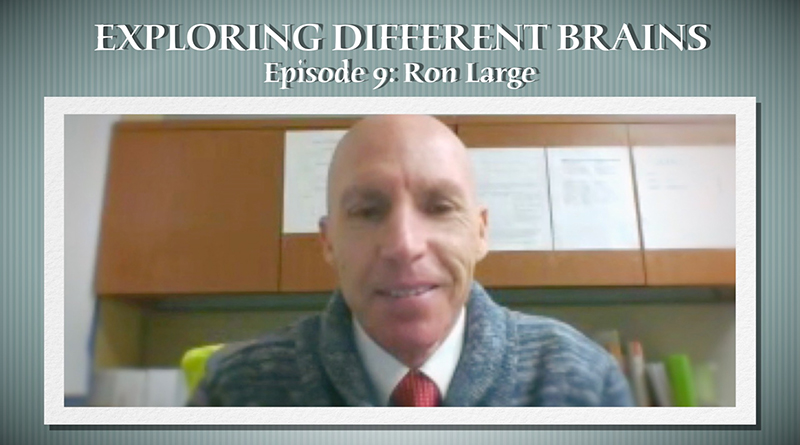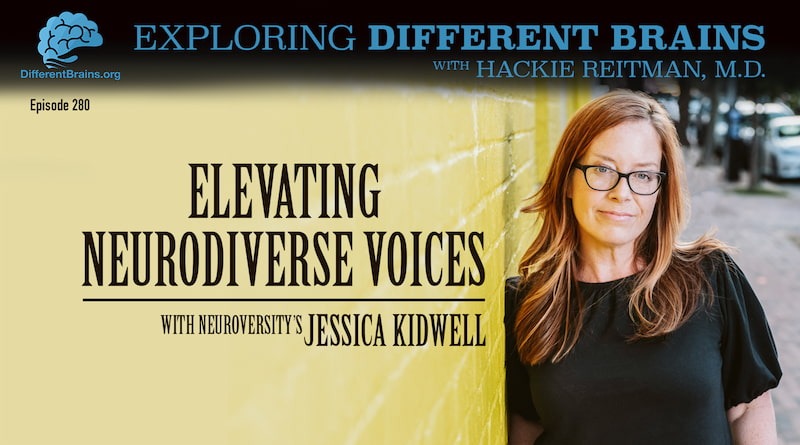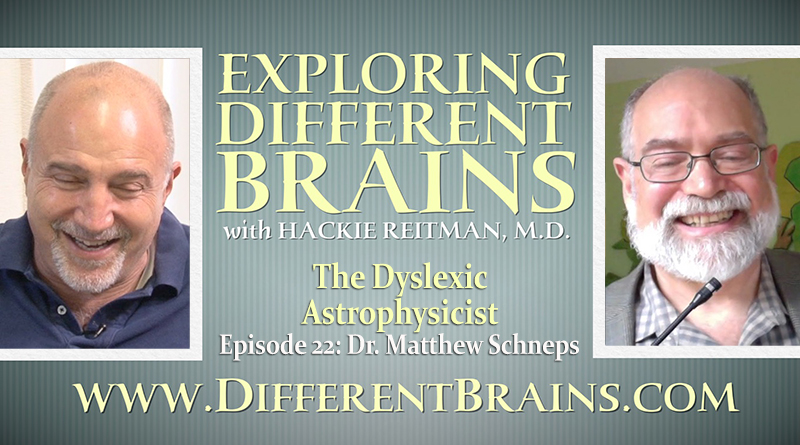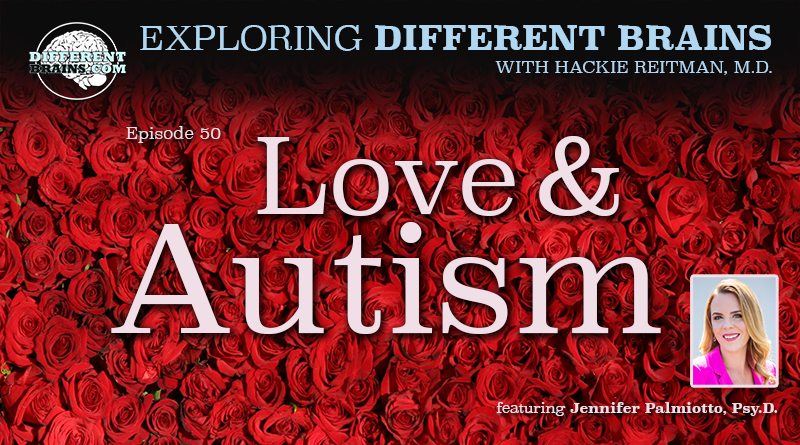
Love and Autism: Exploring Romance and Neurodiversity with Dr. Jennifer Palmiotto | EDB 50
In this episode, Harold Reitman, M.D. speaks with Dr. Jennifer Palmiotto, marriage counsellor, family therapist, and founder of the Love & Autism Conference in San Diego, California. Dr. Palmiotto speaks about the importance of demystifying taboos surrounding the love lives of people on the autism spectrum, and of the importance of authenticity within relationships.
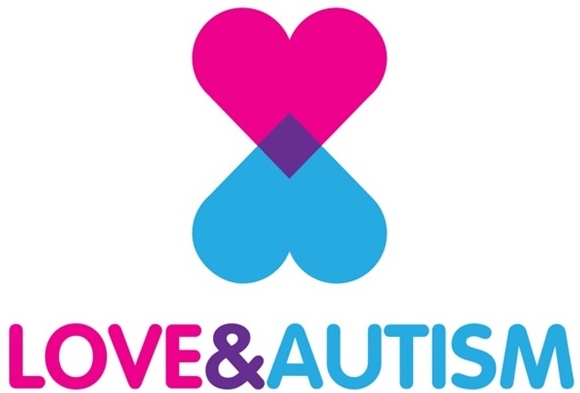 The Love & Autism Conference is being held in San Diego, California October 8th and 9th. The two-day conference will feature world-renowned professional speakers in the autism field and role models in the autism community, including Steve Silberman, Michael Tolleson, David and Kristen Finch, Dr. Barry Prizant, Alex Plank, Caren Zucker and John Donovan among other respected speakers. You may remember Michael Tolleson, the autistic savant artist, from our previous episode featuring him.
The Love & Autism Conference is being held in San Diego, California October 8th and 9th. The two-day conference will feature world-renowned professional speakers in the autism field and role models in the autism community, including Steve Silberman, Michael Tolleson, David and Kristen Finch, Dr. Barry Prizant, Alex Plank, Caren Zucker and John Donovan among other respected speakers. You may remember Michael Tolleson, the autistic savant artist, from our previous episode featuring him.
For more information about the Love & Autism Conference, visit: loveandautism.com
For more about Dr. Palmiotto’s practice, visit: familyguidanceandtherapy.com
72 Second Preview:
To listen or download the podcast version of this episode, see the embedded player below.
Or look for us on your favorite podcast provider:
iTunes | Stitcher | SoundCloud
[expand title=”View Full Transcript”]
Hackie Reitman: Hi I’m Dr. Hackie Reitman. Welcome to another episode of Exploring Different Brains here at differentbrains.com. Today we have the pleasure of introducing to you Dr. Jenny Palmiotto and she is out there in San Diego. And she’s a marriage counselor and family therapist and she’s got something special to talk to us about today. Welcome Jenny. How are you?
Jenny Palmiotto: Wonderful, thanks for having me on.
Hackie Reitman: Now I’m very excited about your upcoming event. Love and autism. You want to tell us about that.
Jenny Palmiotto: It is a two day advance where we bring in the world’s best autism stuff out for kids, researchers, professionals, here at mentors and a number of people that check both boxes to share their view on a lot of intimacy, relationships, friendships really the things that matter in my relationships and the sense of belonging.
Hackie Reitman: We’re going to come back to love in autism. Because you’ve assembled a real all star team some of whom I know out there and it’s going to be a great event. We’re going to come back to that but first let’s backtrack. I need you to introduce yourself. How did you get into all of this? What is it you do? How do people find you? What’s going on out there in San Diego.
Jenny Palmiotto: So I am the clinical director and CEO of the family guidance and Therapy Center of Southern California and we are a small private practice that does relational work with under kind of an attachment framework which means that we all agree that our relationships are, the most important thing in life. And so we have a number of marital and family therapists. Some BCBA’s and a number of other professionals and we all work together and many of us as support families and people artistic people.
Hackie Reitman: Now you just said something that resonated with me. That in our crazy world I don’t hear too often it was just very matter of fact when you stated. Yeah we kind of hang out with people who feel that the most important thing in life is our relationships. Wanna expound on that a little bit.
Jenny Palmiotto: Well you know it’s interesting one thing that we all have in common as humans is that we are connected to somebody from birth. We are connected to our mothers physically and then through our lifespan we are kinda hardwired to create meaningful connections from the parent child relationship all the way into work relationships and friendships and intimate partnerships and relationships are in our lives from the cradle to the grave.
Hackie Reitman: And yet in our lives many of us we don’t put them first we put other stuff first.
Jenny Palmiotto: I think that our fast pace world has us putting a lot of things first and it’s helpful to remember that when we allow ourselves to love fully and be vulnerable enough to kind of be our authentic self with others that it only enriches our lives and creates happiness and wellness that we often think will come with success. But it can happen now in whatever state your life is at.
Hackie Reitman: And what drove you to been in love with autism conference. What started you on that?
Jenny Palmiotto: So I have been in. My first job and only job has been with people with autism. And so I started about 16 or so years ago and you know that I was probably young and determined in naive. And I thought that the autism community and industry would grow and change and become much more positive. And I thought we would do away with this concept of compliance being the goal of life. Years ago and I noticed that it wasn’t happening at the rate that I wanted to see change. I said well let me see if I can maybe put a small drop in the bucket and change. And I decided I would throw a conference that I personally have wanted to see the speakers. And so I just kind of arranged a lineup that I felt like step with my core values that relationships are critical and that compliance is not not as well of it within the autism of world.
Hackie Reitman: What are the dates of the conference?
Jenny Palmiotto: Our dates are October 8th and 9th at Saturday and Sunday. Actually the next weekend.
Hackie Reitman: You go where a lot of people dare not go. It’s almost like a taboo to talk about with people on the spectrum with Asperger’s with autism or any relationship at all let alone you go into the intimate relationships the meaningful relationships the husband and wife the boyfriend and girlfriend the significant other. What, what led you there?
Jenny Palmiotto: Well I think that when you understand relationships and their feelings they’re happening in every moment of our lives and we kind of organize them into certain ways across the life span. And so when we decided to do Love and Autism, the first concept was to do a 360 degree of love. We decided to kind of hand pick a number of different stories and ask each seeker to be raw, honest and real and talk about whatever it was that can tell them within the message of love. And that’s how so so many of the different topics of comments to autism I don’t necessarily tell any speaker what they should talk about. That’s my only advice is to be raw honest and real. And then our theme and these lovely people these amazing and talented people have come up with these really compelling topics.
Hackie Reitman: What advice in general if any because I know every human being is different and if you met one Aspie you’ve met one Aspie. What advice would you have for the parents who sometimes feel. No matter what move they make it’s the wrong move to try to be helpful in that regard.
Jenny Palmiotto: Yeah. You know my advice is relatively simple and it’s a statement and it may be hard to live but I know that what I notice about many people including parents is that we we put happiness as contingent upon success so I hear people saying things like if I’ll be happy when my child talks. I’ll be happy if I get 30 more minutes of speech for my child a week or when he gets into that great school and happiness is available to us now. And figuring out how to live in a way that allows for happiness with whatever is occurring in your life whether whether your child isn’t in the place that you wanted them to be in or whatever it is. And when people put happiness first and success as a secondary concept. Success is available to them. And they find it really strengthens families when they are able to show gratitude for that right in this moment and to look around and realize that their life is very perfect.
Hackie Reitman: Jenny that’s very well said and. I applaud you for that position and it kind of goes in line with. Working with the positives and not the negatives working with the strengths and not harping on the weaknesses. Now I see you have as a speaker with love and autism in San Diego. Somebody we interviewed who I had a blast with it that you know. And that’s Michael Toller’s what it tells a little bit….
Jenny Palmiotto: I just love that man. Michael, I met Michael last year at love and autism when he came down for the autistic wedding and he did this beautiful masterpiece that the bride and groom were married in front of. And Michael took the microphone and had me in tears from minute one. And I since have had an opportunity to go to dinner with him a few times and I just find his words of wisdom to be magical. I think he’s a really enlightened human being.
Hackie Reitman: Well yeah and he’s champion of the underdog too. And he’s funny. He’s funny.
Jenny Palmiotto: Yeah he’s got a lot of sites that are. Yeah. He’s he’s amazing and I really think that he speaks to. A really wide audience. He’s you know I think so often in the autism community and people have a hard time listening to stuff 15:35 because they have this checklist he doesn’t look like my son because as my son was diagnosed at 3 and he was diagnosed at 50. There’s all these comparisons and it seems that people might misunderstand that. All of those differences may not matter and that we can still learn from each other’s narratives regardless of the similarities and the differences don’t mean that the advice or the messaging is somewhat not helpful to that family. So I think Michael is going to just dazzle our audience and we are happy to have him.
Hackie Reitman: He certainly dazzled me on our interview. For our audience who might not be familiar with some of these names were thrown around here. Michael Tolleson is an autistic savant artist. Another is Steve Silberman who has a new York Times bestseller NeuroTribes. And you can you can see Steve by the way in his TED talk he has done very good TED talk and you can find them online. He’s all over the place.
Jenny Palmiotto: I too love Neurotribes and I would call myself a super fan. I think it was just the right book at the right time. And I read it over and over again I am actually the parts can tell me the most are kind of the where I entered the field in reading some of the reasons why I’m, why am I don’t believe certain things that I did and what influenced my therapeutic practice at that point.
Hackie Reitman: That’s great that you have such an all star team there. By the way if you want to see if edition to the interview different brains with Michael Tolleson if you Google him you can see him. Paint a absolute detail masterpiece of painting. Like about five minutes. He just does it. He does it. His brain just goes there. So pretty amazing.
Jenny Palmiotto: And he’ll paint live at Love and Autism as well. Just phenomenal to watch.
Hackie Reitman: Very cool. What did you think are some of the biggest misconceptions about and by individuals who might have Asperger’s or autism about intimate relationships.
Jenny Palmiotto: Well I think one of the most damaging misconceptions is this belief that people on the spectrum don’t want any relationships. And further that they don’t have successful relationships. And so love and autism is kind of hit on both of these things where there’s nothing that tells me that people on the autism spectrum. Don’t need to belong and don’t need the sense of sense of feeling connected to others at any stage of their lives. And then the idea that these people don’t have loving relationships is just absolutely false. So we have a number of people that talk about their relationships and in fact this year. And David Finch author of The Journal of best practices and his wife Kristen Finch are coming together to talk about their fun and healthy marriage and they have a neurologically next relationship. And then we have a number of other speakers that will talk about their varying relationships and friendships and committed relationships. So I think that the reason that that’s damaging is that when we believe something like that it then allows us to ignore this primary need it allows us as professionals to overlook and overlook and not discuss or have dialogue related to how do we help people that are under connected or that are not having the quality relationships that they want and need. Well we don’t attend to that clinically and that’s a mistake. I think that when we, making a surface level thing and we just talk about social skills we’re missing something. Most of the many many people that I know that happen to be in autism spectrum could write books about social skills. The rules are known for men and and that isn’t the same as having a sense of a real army with another human being. And so our values or conditions and our interventions as clinicians really really shift if we don’t believe that people in autism spectrum want and need loving connections and then another myth. And I won’t go much into this one is that people in autism spectrum have sex and want to have sex and do have sex and that’s not talked about that much. And so we invite people that are you know open their lives up to combat that are crazy at damaging misconception.
Hackie Reitman: Is there any general advice you would give to someone who is dating someone with autism or Asperger’s or is married to them?
Jenny Palmiotto: Well I think for me the idea of authenticity comes up. And that for me is in a dating relationship. If I know a partner is not being their full and true self its not going to work. And so I think sometimes people on the spectrum feel like they have been masking hide aspects of themselves and I guess we all do that a little bit in the early stages of dating certainly. But at that moment when you’re deciding if this is a person that you want to date date date and develop a relationship both partners have to be their authentic selves. And if we’re sending change messages to one another it’s not going to last.
Hackie Reitman: All of the stuff you’re talking about is just good plain old advice for any of us. And I applaud that and commend you on it. And also I want to salute you because you’re going into areas where people are just chicken to go in to. It’s just hard. It’s a hard thing. And we need it
Jenny Palmiotto: It’s interesting because I didn’t set out to be in any sort of setting other than on a couch- the couches right behind me. Talking about their lives. And at some point I just felt compelled to do a little bit more. And you know while you are talking I very much resonate with what you’re saying all the stuff that we’ve been discussing are things that are just things of being human. And yet I don’t want anybody to assume that I am you know white washing the real true disabling aspects of autism in the personal symptomology for each individual. And I certainly understand that many people are contending with many things related to their diagnosis and certainly want to provide all the supports possible. That are dignified respectful and where people are shown real true loving kindness while receiving support. So I think sometimes you know whenever I’m talking, and I’m certainly not on the autism spectrum, I need to at least examine my “neuro-majority” status here and recognize that you know I’m constantly in a state of learning and I truly need and value the voice of artistic people out there that are guiding my journey and I can’t wait to see where I am in five years and ten years because we’re all kind of learning and changing.
Hackie Reitman: Now for all of our audience who are going to want to get in touch with you. Going to want to find out more about love and autism. Could you give us the information how to get a hold of you.
Jenny Palmiotto: Right. You can buy anything you want all of them are at loveandautism.com. So it’s spelled out a loveandautism.com and my web site related to my critical practice is the familyguidanceandtherapy.com.
Hackie Reitman: Well Jenny it’s been an absolute pleasure to have you here on this episode of exploring different brains. I wish I could be there personally October 8th and 9th at your Love and Austism Conference in San Diego with all the all stars you’re going to be having there. Thank you so much for taking the time being with. Thanks for looking out for all of us with different brains.
Jenny Palmiotto: Thank you for having me. This is wonderful.
[/expand]
This video is owned by Different Brains Inc, kindly donated by it’s original producer PCE Media LLC.
Different Brains® Inc. founder Harold “Hackie” Reitman, M.D. is an author, filmmaker, retired orthopedic surgeon, former professional heavyweight boxer, the past chairman and president (and current board member) of The Boys and Girls Clubs of Broward County, and a neurodiversity advocate. However, it was his role as a father that led to the creation of the DifferentBrains.org website.
Hackie’s daughter Rebecca grew up with epilepsy, 23 vascular brains tumors, and underwent 2 brain surgeries before the age of 5. Her struggles and recovery put him on the road to, through 26 professional heavyweight boxing matches, raising money for children’s charities (to which he donated every fight purse).
Rebecca eventually went on to graduate from Georgia Tech with a degree in Discrete Mathematics, and Dr. Reitman wrote and produced a film based on her experiences there (The Square Root of 2, starring Darby Stanchfield of ABC’s Scandal). After graduation, Rebecca received a diagnosis of Asperger’s syndrome. Hackie, shocked at his own ignorance of the topic despite being an M.D., embarked on years of research that culminated with his book Aspertools: The Practical Guide for Understanding and Embracing Asperger’s, Autism Spectrum Disorders, and Neurodiversity (released by HCI books, publishers of the Chicken Soup for the Soul series).
This experience revealed to Hackie the interconnectedness of the conditions that fall under the neurodiversity umbrella, while alerting him to the in-fighting and fractured relations that often plague the organizations tasked with serving the community. Convinced that overcoming these schisms could help all of society, Hackie forged the Different Brains philosophy of inclusive advocacy: “Supporting Neurodiversity – From Autism to Alzheimer’s and All Brains In Between”.
In the company’s initial years of operation, Hackie self-financed all of the content on DifferentBrains.org, all of which offered free to view to the public. Currently he is the host of our weekly interview show Exploring Different Brains, writes blogs for the site, and tours the country speaking at conferences, conventions and private functions, all with the goal of improving the lives of neurodiverse individuals and their families, and maximizing the potential of those with different brains. Separate from Different Brains, Hackie is the founder and CEO of PCE Media, a media production company focusing on reality based content. He recently co-executive produced the documentary “Foreman”, the definitive feature documentary on legendary boxer and pitchman George Foreman.

